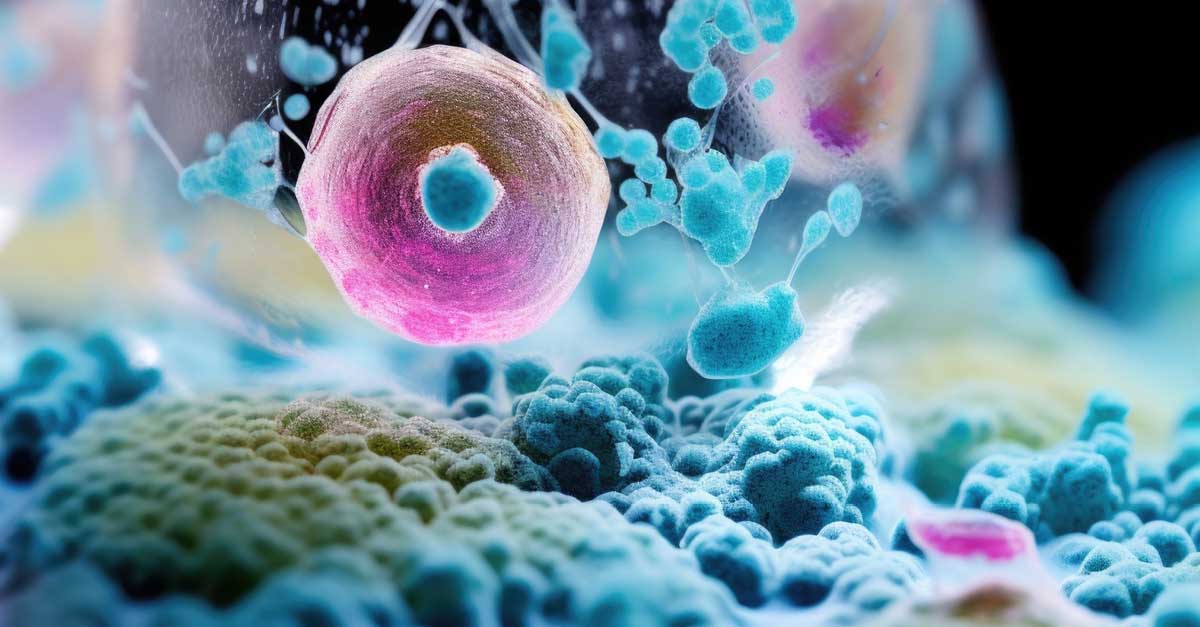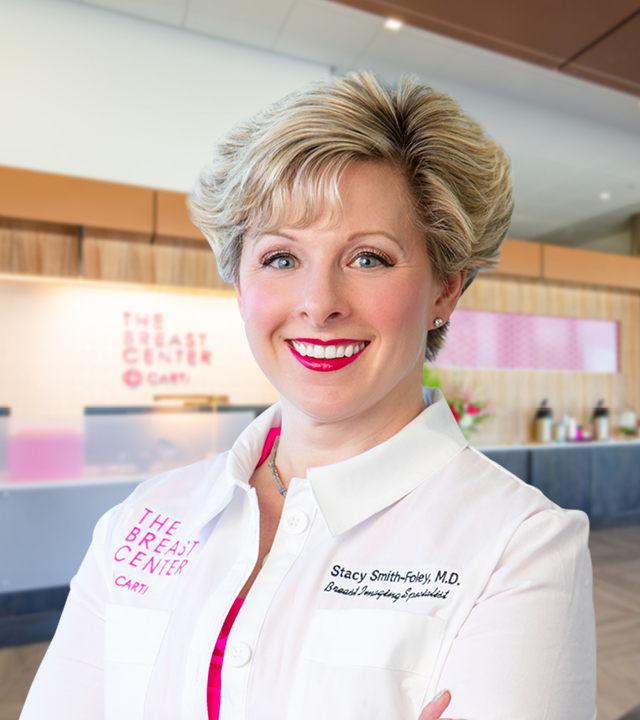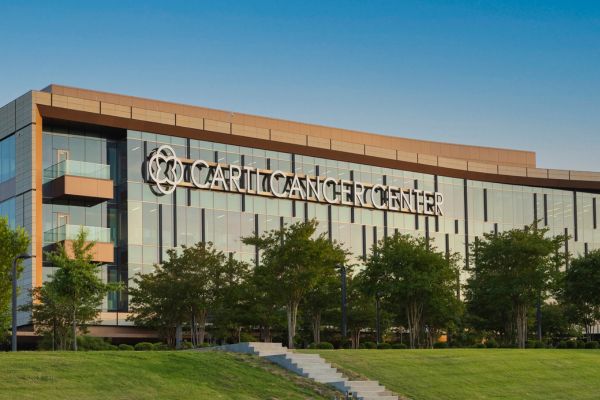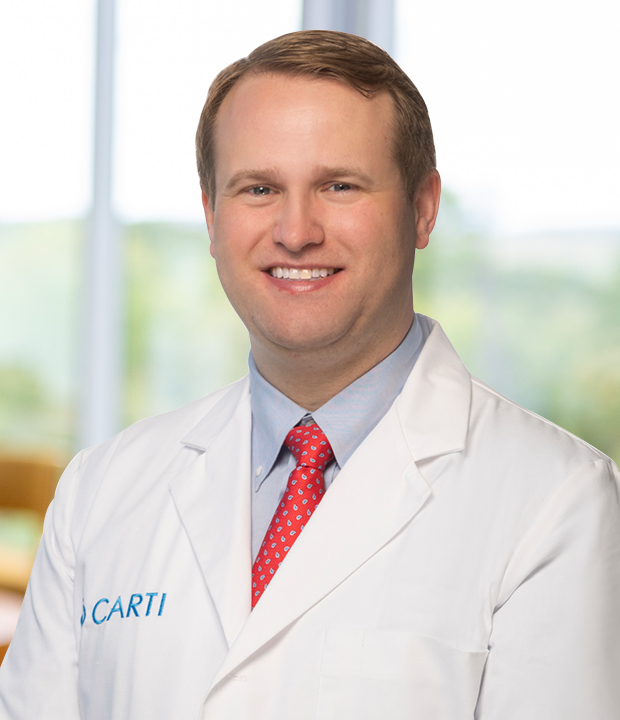Genetics Testing Proves Useful For Cancer Awareness, Prevention
In the most basic terms, cancer is a genetic disease. Cancer is caused by changes to genes that control the way cells grow and divide. Some of these cancer-causing genetic changes are inherited from our parents, and others are acquired during a person’s lifetime.
Cancer genetics studies hereditary and familial cancer. While only about 10 percent of cancers are hereditary, our team goal at CARTI is to reduce the mortality rate of cancer in Arkansas, which is higher than the national average. Genetic Counselors occupy a small, but important slice of this fight by helping to identify individuals at risk for hereditary breast and ovarian cancer, hereditary colon cancer and other inherited forms of cancer.
Those of us working in clinical settings see patients most commonly in such areas as prenatal, pediatrics and cancer. I am tasked with identifying the most informative family member to test, assessing the most appropriate genetic test(s) for patients and their families, interpreting the results, and helping patients and their physicians apply the results to medical management decisions. I serve doctors as a genetics brain in their back pocket; I’m their genetics search engine.
Who Benefits from Cancer Genetic Counseling
There are certain markers indicating a patient should consider genetic risk assessment and testing. They include:
- Common cancers at an uncommon age
- Common cancers at uncommon frequency
- Rare cancers (e.g. ovarian or pancreatic)
Especially in regard to breast and ovarian cancers, the focus tends to be on the mother’s side of the family. Dad’s family history is just as important, but it is often overlooked or not reported.
It’s striking to hear that you have breast cancer when you’re 35. After a cancer diagnosis, genetic testing can help answer the question, “why me?” It also can help inform how treatment should proceed – including radiation, surgery and chemotherapy.
After looking at the results of genetic testing, we can also help other family members understand the benefits of testing so that we can promote awareness, early detection and prevention for even more people.
Because of such high-profile figures as Angelina Jolie, most people are familiar with the BRCA1 and BRCA2 genes, which are known to increase the risk of breast cancer. Individuals with a mutation in one of these genes have a 55 to 87 percent risk of breast cancer. They also have an increased risk – 64 percent – of a second new occurrence of breast cancer.
If this gene mutation is detected, the recommendation is to consider increased surveillance. Starting a routine of breast surveillance with mammogram and breast MRI alternating every six months is recommended for women at greatly elevated risk.
Individuals with a BRCA gene mutation are at increased risk of not only breast cancer, but also ovarian, pancreatic and prostate cancers. In fact, the risk for ovarian cancer is 63 percent, in comparison to 1 in 71 for all women. Ovarian cancer is particularly dangerous because it often is not detected early.
Women with a gene mutation may also be advised to take the birth control pill to reduce the risk of ovarian cancer, or tamoxifen, which can reduce the risk of breast cancer.
Preventive surgery is another possible option. Women at high risk for ovarian cancer may have their ovaries removed after childbearing is complete.
While hereditary breast cancer and the BRCA genes receive more attention, there is another hereditary cancer syndrome that is just as common. Lynch syndrome – also known as hereditary nonpolyposis colorectal cancer – is an inherited disorder that increases the risk of many types of cancer, especially cancers of the colon and uterus. For most people, guidelines call for the first colonoscopy at age 50. However, if we know a person has a mutation in one of the Lynch genes, the recommendation would be to start colonoscopy at a younger age (40 years old) and screen annually. In general, a pre-cancerous polyp that is left in the colon long enough will go on to become cancer. If we screen patients with colonoscopy more often, we increase the chance of finding a polyp early – before it has a chance to progress to colon cancer. For patients with a mutation in one of the Lynch genes, colonoscopy helps to prevent cancer or detect it earlier, which ultimately helps lower the mortality rate.
Misconceptions about Cancer Genetic Counseling
Although a law against it was passed in 2008, the misconception persists that health insurance coverage or employment can be denied based on the results of genetic testing. The Genetic Information Nondiscrimination Act (GINA) is a federal law that protects people from genetic discrimination in health insurance and employment. We also have additional laws on the state level here in Arkansas.
Many people are understandably anxious when they learn they are at an increased risk for cancer. But the truth is that although mutations in some genes may predispose individuals to cancer, not all people who carry these mutations develop cancerous tumors. We don’t want people to live in fear; we want them to feel empowered. Genetic testing provides an opportunity to know if there is a potential for a diagnosis; it provides a little bit of control.
The Future of Cancer Genetic Counseling
While genetic testing has been available through oncologists for a number of years, it has been up to the clinicians to try to keep up with advances in the rapidly evolving field of genetics while simultaneously maintaining expertise in their own specialty. The cancer care team at CARTI wants to be consistent across the practice – which includes establishing guidelines for who to test, as these standards change every year. The next step at CARTI is to look at patients who are cancer survivors, but may be 20 years out. They may be at increased risk for other cancers, and we want them to have the opportunity to decide for themselves whether to have genetic testing.
As opposed to BRCA-only analyses in women with breast cancer, multigene testing may detect a mutation in another gene that also impacts cancer risk. It provides more clinically useful information for patients and their relatives. But in order to be most successful, greater access to genetic testing is necessary.
More genetic counselors are needed to be integrated into standard cancer care. If we’re missing people who may have a mutation, they might not be able to take steps to reduce their risk of cancer.
For more information on genetic testing, visit our Cancer Genetics and Risk Management Clinic.






